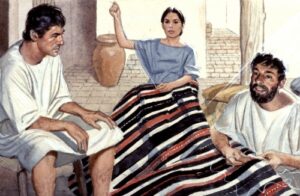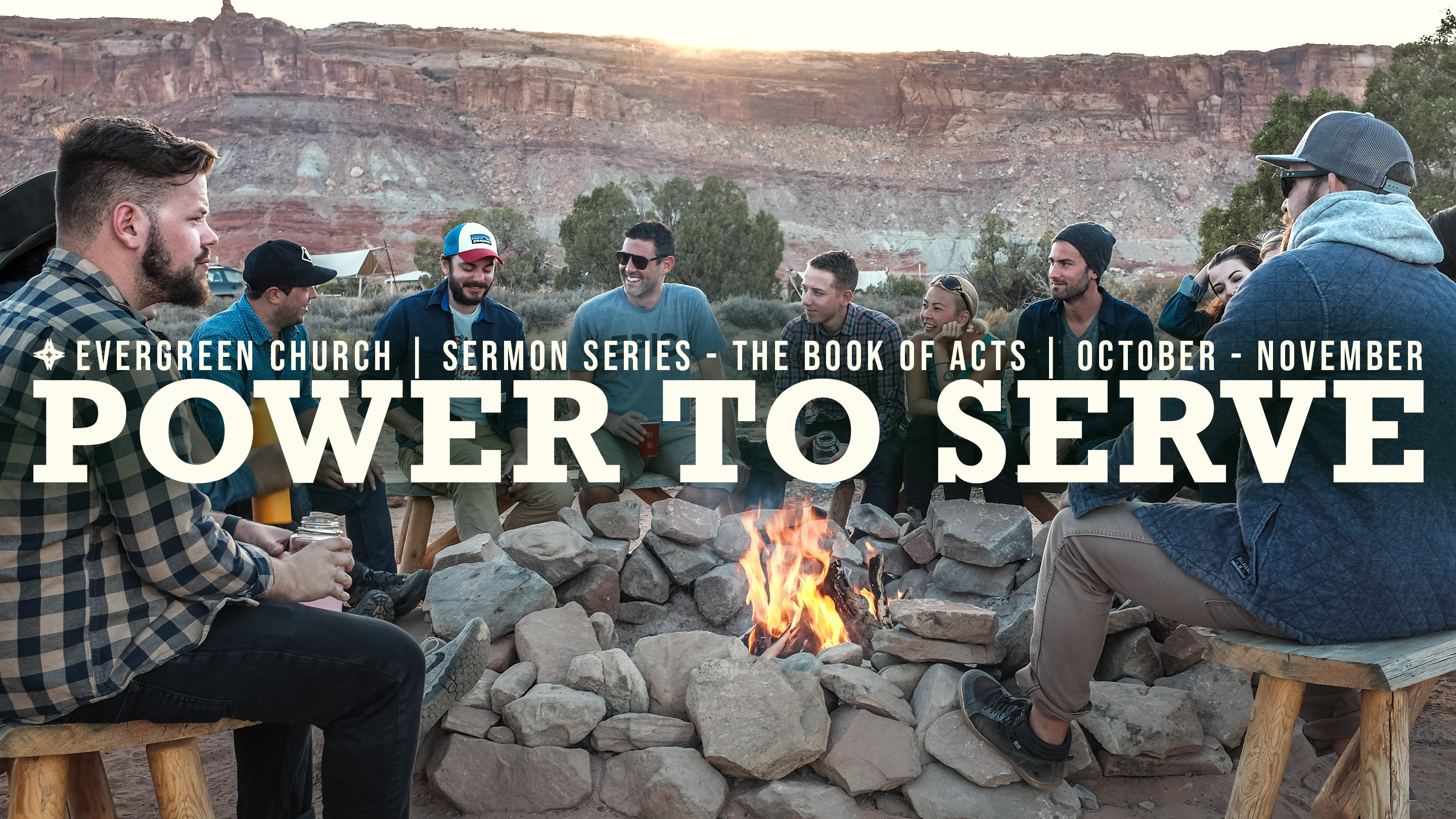[Listen to an audio version here]
Ralph Waldo Emerson in his essay on self-reliance explains that what is most unique about each person cannot be taught to that person. He writes:
Where is the master who could have taught Shakspeare? Where is the master who could have instructed Franklin, or Washington, or Bacon, or Newton? Every great man is a unique. The Scipionism of Scipio is precisely that part he could not borrow. Shakspeare will never be made by the study of Shakspeare. Do that which is assigned you, and you cannot hope too much or dare too much.
I think there is something to what he says. We all have a uniqueness that can blossom under the right circumstances.
However, in other ways, what Emerson says is not quite right. Shakespeare was part of a group of dramatists. He did not “go it alone.” Washington reflects the Virginia aristocracy. Scipio was the general who defeated Hannibal, but he defeated him by using strategies other Roman generals had thought of but not put into practice. He came from a family and a nation where the citizen trained for war. In other words, Scipio could not borrow his Scipionism from anyone else, but he also would not have been Scipio without a host of support characters.
This is not something we should take for granted. Many people have made a contribution to our lives, and we are what we are because of the general contribution of millions and the special contributions of a few.
 In our passage, we have a beautiful example of this. We have a great man, Apollos, and we have the people who contributed to his life, a husband and wife team, Priscilla and Aquila. They provide a pattern and example of one way we can join what God is doing in bringing redemption and restoration to a fallen world.
In our passage, we have a beautiful example of this. We have a great man, Apollos, and we have the people who contributed to his life, a husband and wife team, Priscilla and Aquila. They provide a pattern and example of one way we can join what God is doing in bringing redemption and restoration to a fallen world.
The Mentee
In the book of Acts, we meet Apollos in the context of Paul’s third missionary journey. Apollos began his work during that time.
Apollos was Jewish, but his family leaned toward the Greeks or Hellenism. He is named after the Greek god Apollo! One reason for his Hellenism was that he was from Alexandria. Alexandria was a city founded by Alexander the Great. There was the ancient library that was one of the wonders of the world. There was a large Jewish community. There the Jews translated the Old Testament from Hebrew into Greek. It is not surprising that such a community would produce a learned man like Apollos, a Jew named after a Greek god.
Our text tells us that he knew the Scriptures thoroughly. He had also been instructed in the way of the Lord. The result was that “he spoke with great fervor and taught about Jesus accurately . . .” The only problem was that he based all his teachings on the teaching of John the Baptist. He did not have the fuller teachings of Paul the Presbyterian (that’s a joke).
It seems like there were quite a few people who followed Jesus because of the teachings of John but had not yet encountered the fuller teachings of the Apostle. You can read about this in Acts 19.
Like the Apostle Paul, Apollos began to speak in the synagogues. He powerfully preached the way of Jesus.
The Mentors
Priscilla and Aquila were tent makers like Paul. They had left Rome because of persecution. They were able to take up their occupation in new places.
They must have been very impressed with Apollos. They must have been greatly encouraged to see this man with such gifts proclaiming Jesus.
However, they saw that he needed some help, some encouragement, and some guidance to be what God intended him to be and to do what God intended him to do. So, they invited him to their home.
That’s what we can do, too. We can reach out to those who need encouragement and guidance. We can share what we know. We can help them get where they are going faster.
It begins with a willingness to build a relationship. They invited him into their home. That’s where it always starts. It means that we take an interest in people first. The best mentors are those who are more interested in knowing the person they are mentoring than in imparting what they know. They help Apollos develop his Apollonism. They don’t turn him into Priscilla or Aquila.
As you think about this, don’t get too stuck on the “inviting him into their home” issue. The point is that they got together with Apollos. They reached out and connected with him. I know it’s somewhat challenging in our current context. However, we can get together with people. We can do it outside. We can wear masks. We can distance, if we are concerned. We can take the extra steps. If we’re in a group, it’s a lot harder, but it’s not impossible or even really that difficult. It just may be a little annoying or a little cold. People still need us, and we still need people!
When they got together, they “explained to him the way of God more adequately” (Acts 18:26). They explained to him most likely what had happened at Pentecost and helped him understand the power of the Holy Spirit. They shared what they knew.
That’s what we can do, too. Think about what you know, and share it. Make it known. The best context is getting involved the lives of people. If you feel like you connect well with someone, you can meet with them on a regular basis, every month, every week, or every day.
Where did Priscilla and Aquila get this idea of helping someone grow by spending time with them? It is all over the book of Acts. When Paul and Barnabas went on their missionary journeys, they took younger mentees with them whom they mentored. They shared their lives and their work. Three letters in the Bible are about this: 1 & 2 Timothy and Titus. And where did they get the idea to do this? They got it from Jesus. He invested his life in 12 men, 11 of whom spread the Gospel all over the world.
So, who is your Apollos? Who are you inviting into your home, and to whom explaining the way of the Lord more adequately? Who are you helping to grow and learn? You may not be able to stand up and powerfully refute the opponents of Christianity, but you can encourage those who have such gifts. You can invite them into your homes. You can call them. You can encourage them. You can take them out for a meal. You can share what you have learned. That’s how you can participate in what God is doing in bringing restoration and redemption to a fallen world. You can get involved in encouraging others.
The Result
And what will be the result? You will make an impact. After receiving love and instruction from Priscilla and Aquila, he kept going, stronger than ever before. “When Apollos wanted to go to Achaia, the brothers and sisters encouraged him and wrote to the disciples there to welcome him. When he arrived, he was a great help to those who by grace had believed” (Acts 18:27).
He made a greater impact on others than Priscilla and Aquila ever did or could, but he could not have done it without Priscilla and Aquila. Those believers in Achaia were encouraged through Apollos who had been encouraged through Priscilla and Aquila.
You see, God is raising people up to do the work, but he wants you to join in His work of building people up. You just have to get the margin to get involved in people’s lives. That’s what it takes. When you do, you can make an impact.
We have seen in the book of Acts that God is willing to use anybody. He will take the person who has opposed him more than anyone else and turn them into His partner and friend in the work of redemption in the world. He will then use such people in a variety of ways. He will use those who are open to talking to someone new, like he did with Philip and the Ethiopian Eunuch. He will use those who are willing to meet other people’s needs like Tabitha did. He will use those who are willing to cross boundaries like the men from Cyprus and Cyrene did. He will use those who are willing to support the work of the kingdom of God like Lydia did. He will use those who those are willing to encourage the young person who is struggling to use his gifts like Priscilla and Aquila did.
We have a great example of this in our own congregation. Dennis and Shanna Fuller are a sort of Priscilla and Aquila. They have a great gift of connecting with young men and women and helping them know the way of the Lord more adequately. They have invited dozens and dozens of people into their “home” and helped them to be better equipped to serve the Lord.
One of those people who Dennis and Shanna helped was Alex Profitt. He came to Discipleship Focus where he met them. They connected, and they helped Alex, even after he left. They mentored him while he served as Young Life director in Massachusetts. When Dan Ott left this summer, they helped bring him down here. Now, he is encouraging those who are down here with the grace of the Lord, and he is helping them to know the way of the Lord. He is their Apollos.
That’s what we can do, too, if we will get involved with people. Jordan Peterson remarked, “People need so little encouragement.” He was amazed at how such a little bit of encouragement can help people go a long way. That’s the gift we can give, not only in the work of creation, but in God’s work of redeeming the world and bring restoration and wholeness to it. We just have to step out in faith and join Him by getting involved in the lives of people. God will do the rest, and we will be amazed at the results. Amen.


